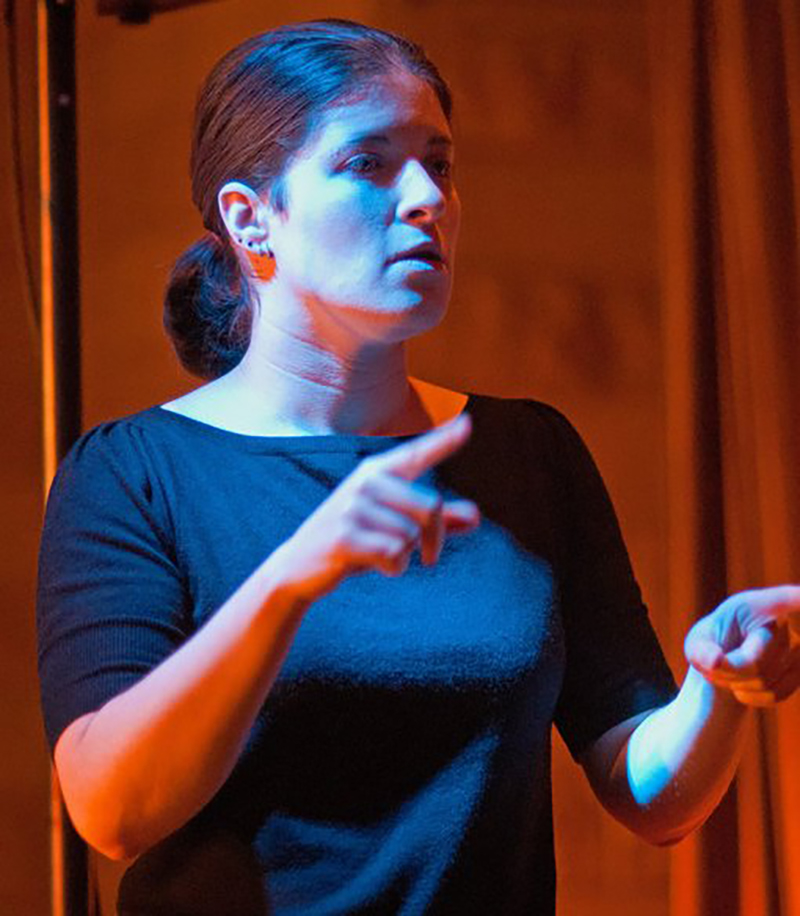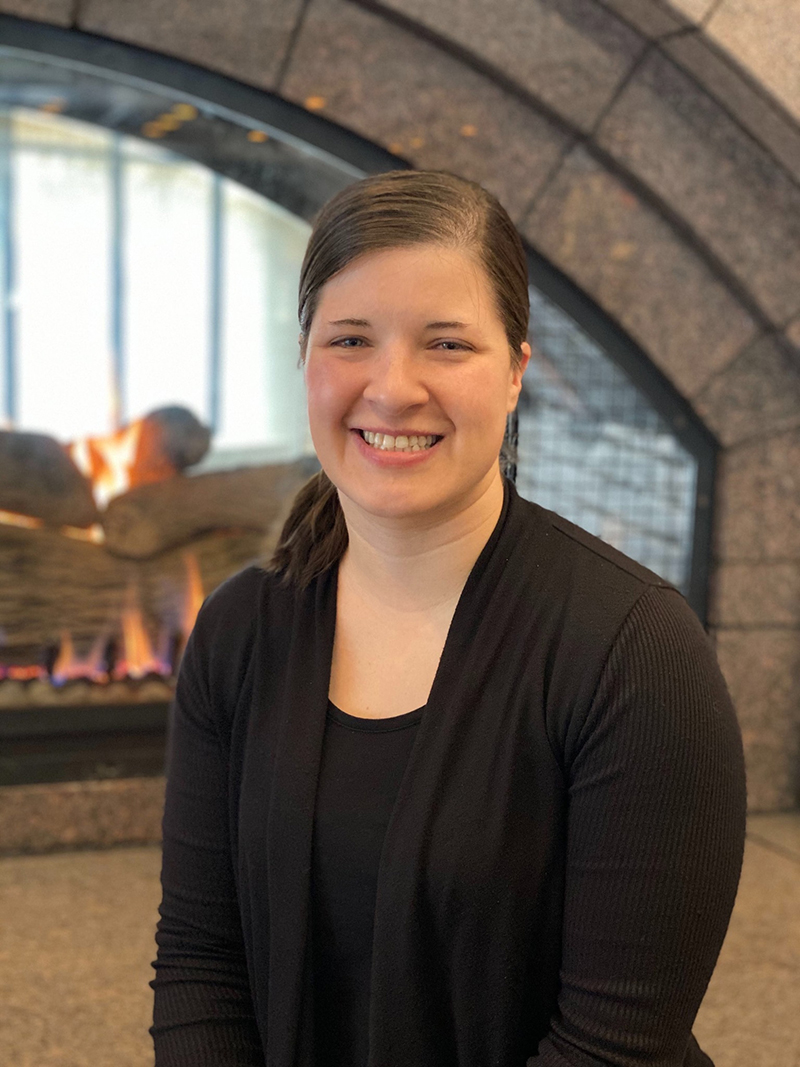Get Involved
Your knowledge, experience and expertise can help students thrive. From supporting them as they decide to come to SCSU to mentoring them as they navigate their next career step.
Tarra Grammenos has been in the Deaf Community for over half of her life, and has built a career out of helping people feel seen and heard in the justice system.
The St. Cloud State University alumna first started taking American Sign Language classes in high school. She now works as a Minnesota court-certified ASL/English interpreter, largely in the Minnesota court system.
 “Just being part of the Deaf Community is the biggest piece of why I love this work. Working in the legal system is something I’ve always been drawn to,” she said. "It’s interesting to me that right off the bat, the two have conflicting philosophies — one values communication, and one values safety — and they do often clash. The criminal justice system is not accessible in general, for a lot of people, but now add the communication barrier and it’s even harder. My job as an interpreter is to try to bridge the two.”
“Just being part of the Deaf Community is the biggest piece of why I love this work. Working in the legal system is something I’ve always been drawn to,” she said. "It’s interesting to me that right off the bat, the two have conflicting philosophies — one values communication, and one values safety — and they do often clash. The criminal justice system is not accessible in general, for a lot of people, but now add the communication barrier and it’s even harder. My job as an interpreter is to try to bridge the two.”
Grammenos decided when she was in college at 20 years old that she wanted to be a legal interpreter. She earned degrees in ASL/English interpreting, psychology of deviance, and legal interpreting before attending SCSU, where she earned a master’s in criminal justice studies in 2015. She was drawn to the University both for its graduate-level program as well as its Minnesota State system connection. Once enrolled at St. Cloud State, she especially appreciated being able to attend her classes — most of which were in-person — remotely as she lived and worked in the Twin Cities while pursuing her master’s.
“I graduated 10 years ago already and thoroughly enjoyed my time with my professors. They treated me almost like a colleague who already worked in the legal system. I felt very respected by them,” she said. “I loved my entire experience; my advisor, the other students, all my professors, the classes — truly I had a great time.”
She credits her capstone project with challenging her and pushing her to the next level of her academic career. As she interviewed 30 law enforcement officers and 30 members of the Deaf Community, the project helped her understand what experiences and challenges each community faced when working together.
 “I noticed a lack of training among the officers on ASL/Deaf culture, or the assumption writing with pen/paper or reading lips would suffice, and it doesn’t,” she said. “On the flip side, the Deaf folks were emphasizing their need to communicate without knowing that de-escalating the situation and focusing on safety was the officers’ priority, so right away they clash.”
“I noticed a lack of training among the officers on ASL/Deaf culture, or the assumption writing with pen/paper or reading lips would suffice, and it doesn’t,” she said. “On the flip side, the Deaf folks were emphasizing their need to communicate without knowing that de-escalating the situation and focusing on safety was the officers’ priority, so right away they clash.”
While pursuing her master’s, Grammenos was also working on her legal interpreting national certification from the Registry of Interpreters for the Deaf. She ended up reaching both milestones in the same month, making her SCSU graduation all the more memorable.
“Graduate work is really challenging, and I appreciated the professors pushing me to that extra level I didn’t think was possible for me,” she said. “When I was in high school, I didn’t think I was smart enough to get a master’s degree, even though I knew I wanted one. The professors saw what I was capable of and helped me get there. I graduated with a 3.9 GPA, which was way above what I thought I could do. I owe a lot to them for sure.”
A large portion of Grammenos’ job is working through misconceptions surrounding the Deaf Community, and bridging the communication gap so that both communities and systems are accessible. It’s her hope that bringing the two sides together can make the system stronger and more cohesive for everyone.
“The criminal justice system has a lot of barriers to a lot of people, and especially the Deaf Community, so with the work that I do, just being able to break down those barriers and open up those doors. Deaf people can access that system in a variety of ways — they don’t necessarily have to be on the other side, so to speak. We have Deaf attorneys nationwide, we have Deaf policemen, we have a lot of Deaf advocates — Deaf legal advocates, Deaf domestic violence advocates that go into court. So, not only just being the Deaf defendant or the victim or the person getting the speeding ticket, it’s working within the system, too, I think would be really cool,” she said. “There are pieces of the legal system that are just really cool, so to be able to meld both communities or both systems together, I think would just be great.”
Your knowledge, experience and expertise can help students thrive. From supporting them as they decide to come to SCSU to mentoring them as they navigate their next career step.
Keep up-to-date with the latest news and research from the University, connect with local alumni and attend events, workshops and seminars.
Whether you are making a difference in your community, bringing about change to your industry or shaping the lives of those around you. We want to hear from you.